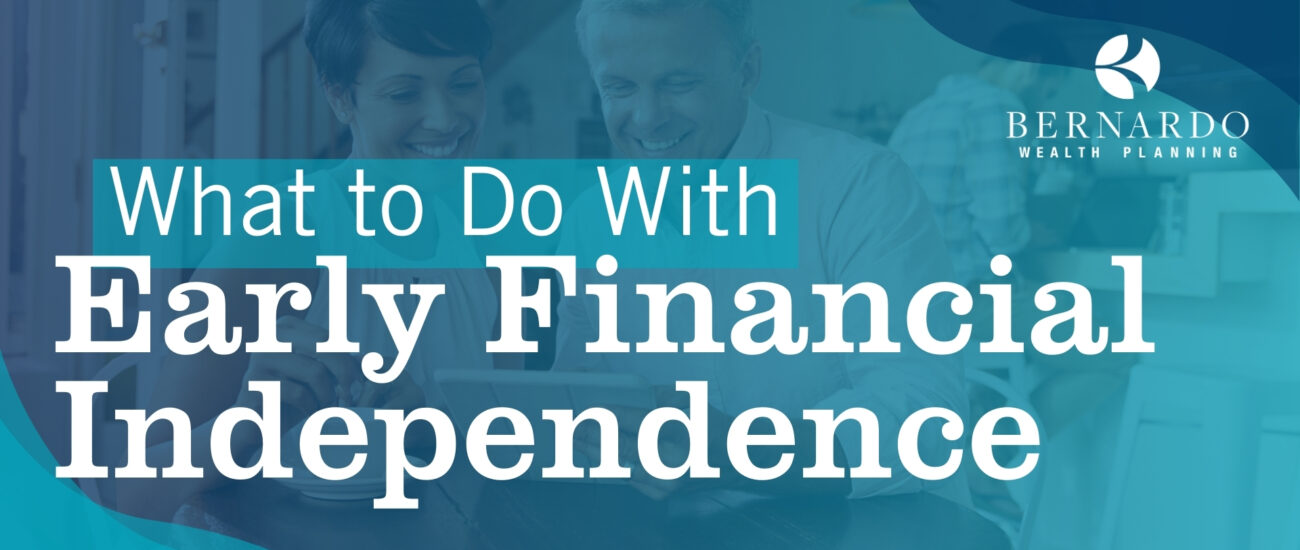Follow Nick Bernardo on LinkedIn
We’re seeing a shift. More clients in their 40s and early 50s are showing up with significant wealth already built. They’re not necessarily looking to retire early but are looking to use their financial position more intentionally.
In a recent conversation, Nick Bernardo reflected on how this generation is approaching wealth differently than those before them.
Wealth Is Showing Up Earlier
Technology, entrepreneurship, and a more rapid career trajectory have changed wealth building. Clients are building wealth faster and earlier. That acceleration is opening up new questions:
- What do I do now that I’ve “won” the financial independence game early?
- Am I allocating my money in a way that reflects my unique opportunities?
The planning becomes layered. Not just about saving more but using the money with more discretion.
Lock In the Long Game, Then Expand
For many clients, the first step remains the same: funding retirement. Lock it in, check that box. But from there, priorities shift.
We see people start to reimagine the hierarchy of their goals:
- Buying a vacation home
- Paying for their children’s full education
- Helping kids financially post-college
- Giving charitably in meaningful ways
“Give while you live” is appearing more often, especially among clients with college-aged kids. There’s this realization that creating a little runway at the right moment can change someone’s trajectory. We’d rather inject those investments into our kids where it will make more of a difference as they start out. You don’t get to attend the reading of your will, right?
Financial Independence Isn’t Just About Retirement
The biggest shift? Wealth is no longer being allocated exclusively for some far-off retirement date. More and more, we’re seeing it used intentionally along the way:
- To create experiences
- To support family
- To fund purpose
Retirement is still part of the picture; it’s just no longer the only destination.
A Final Thought
If you’re at a point where financial independence is becoming more real, this is the moment to pause and re-evaluate the plan. It might be time to think about reallocating the freedom you’ve earned.
You don’t have to wait until 65 to make purposeful financial decisions. You might already be in a position to do that now. The key is knowing which layer of your financial life you’re building next.
